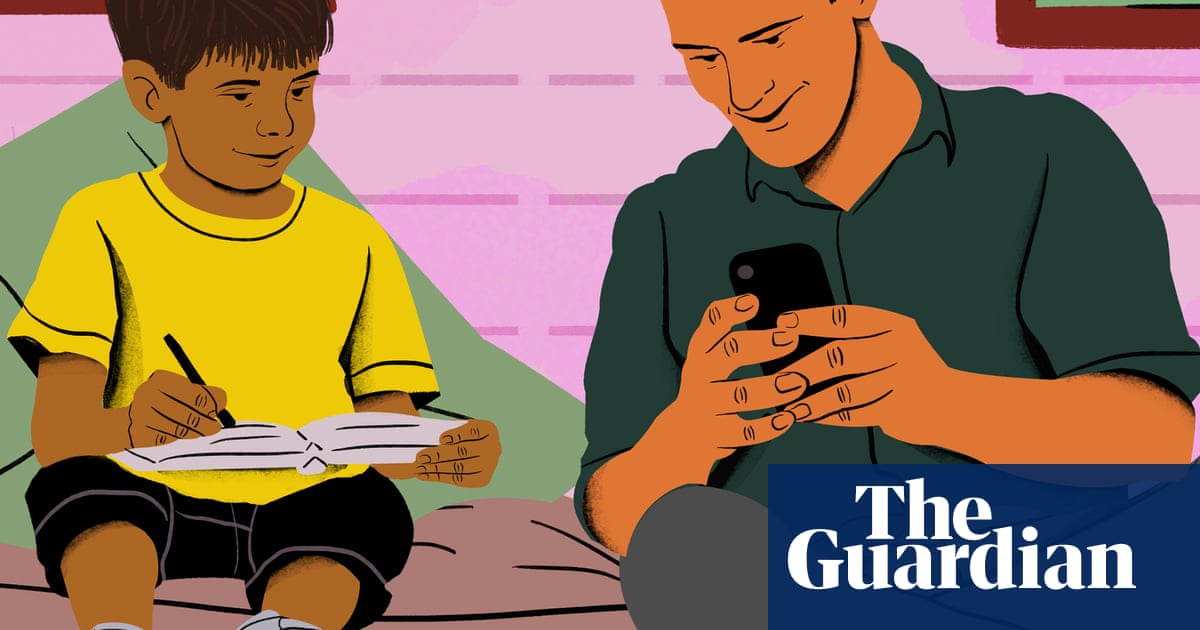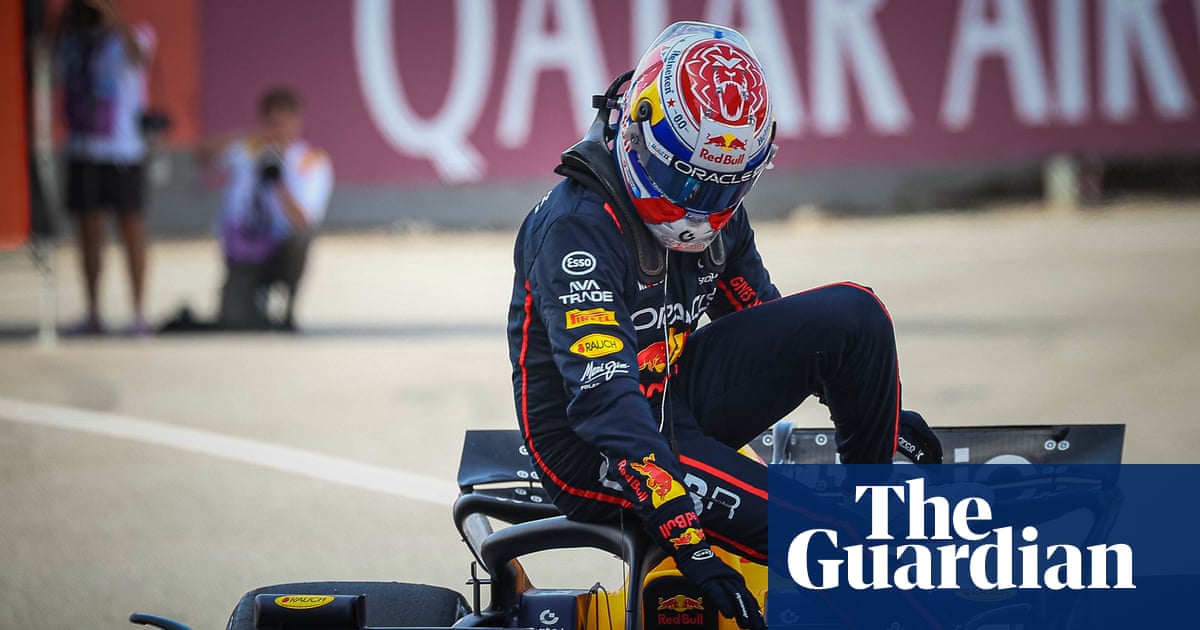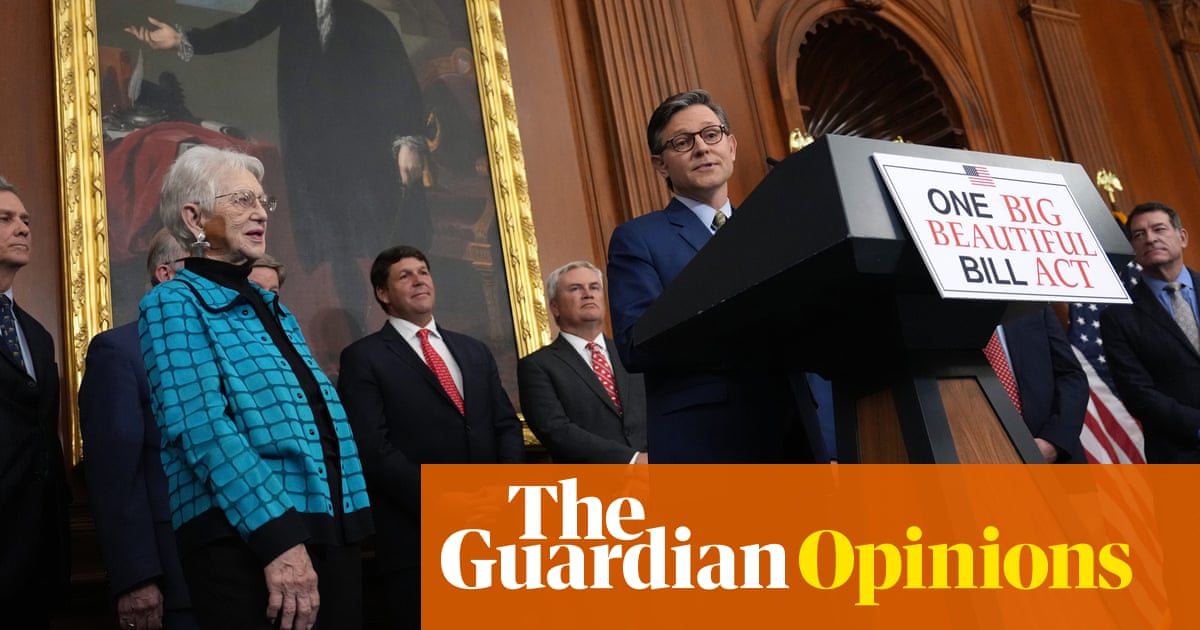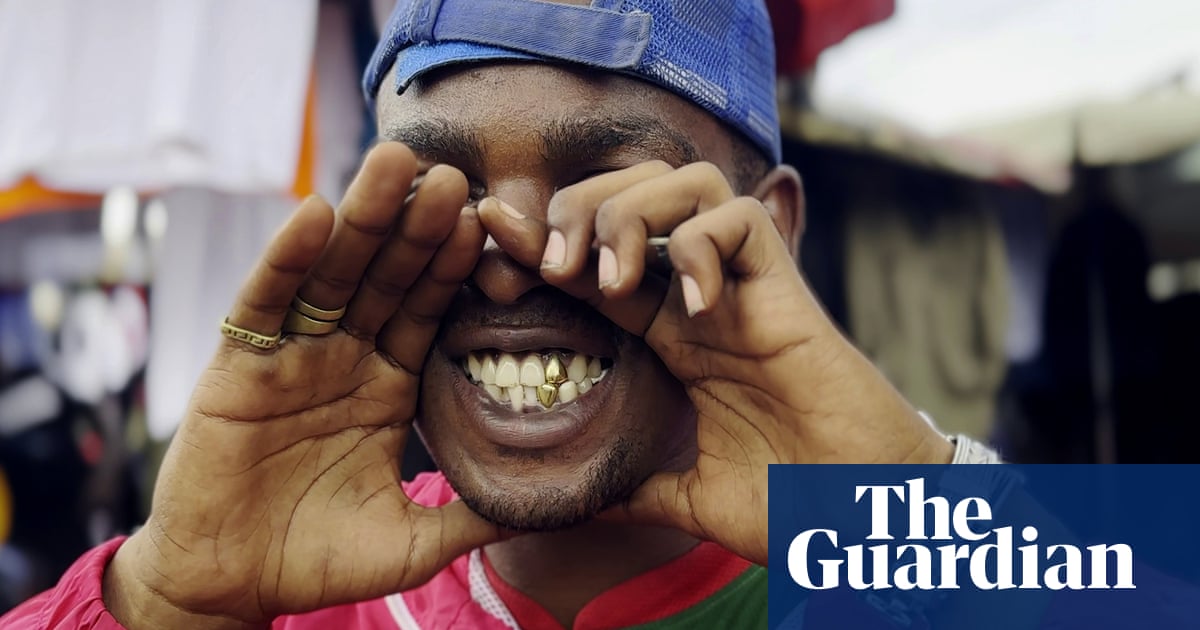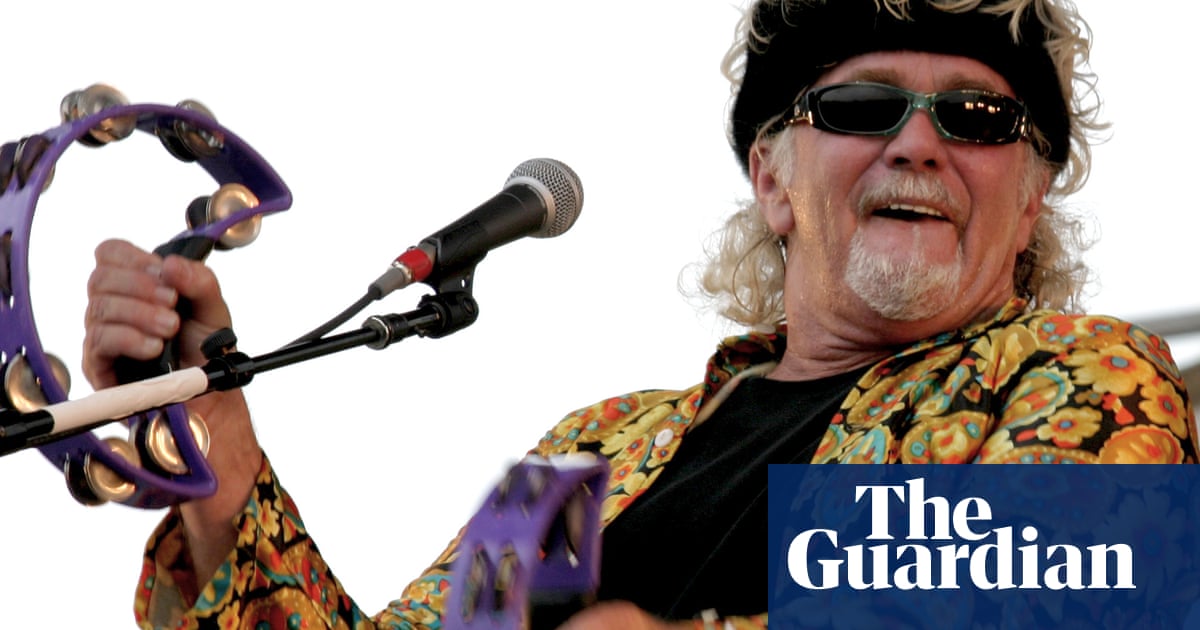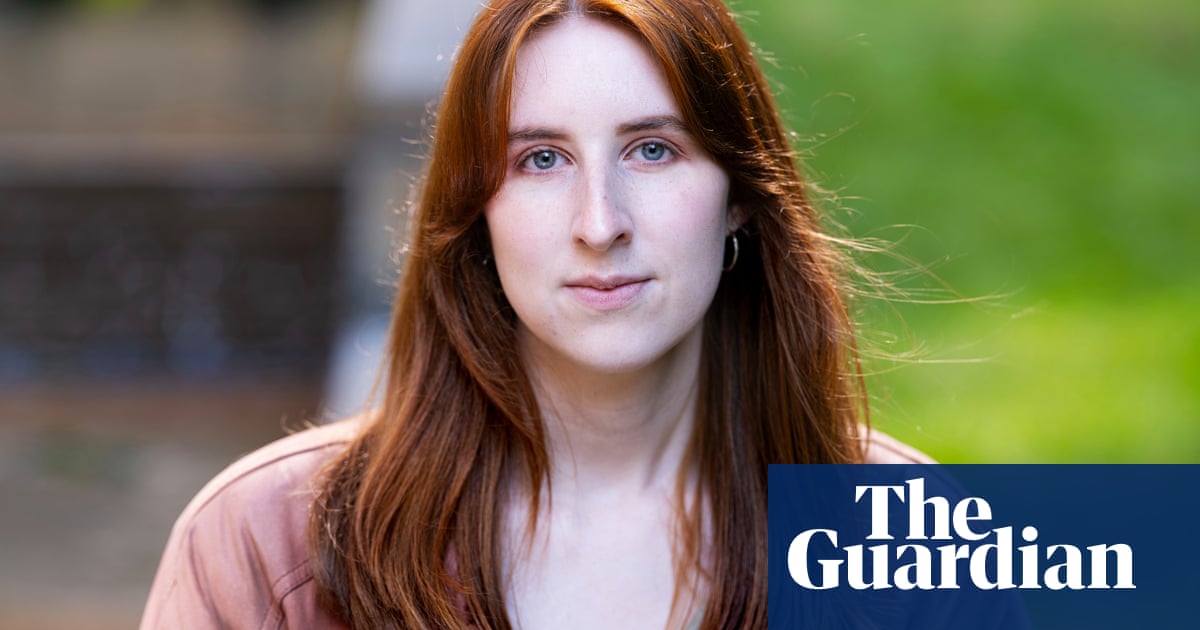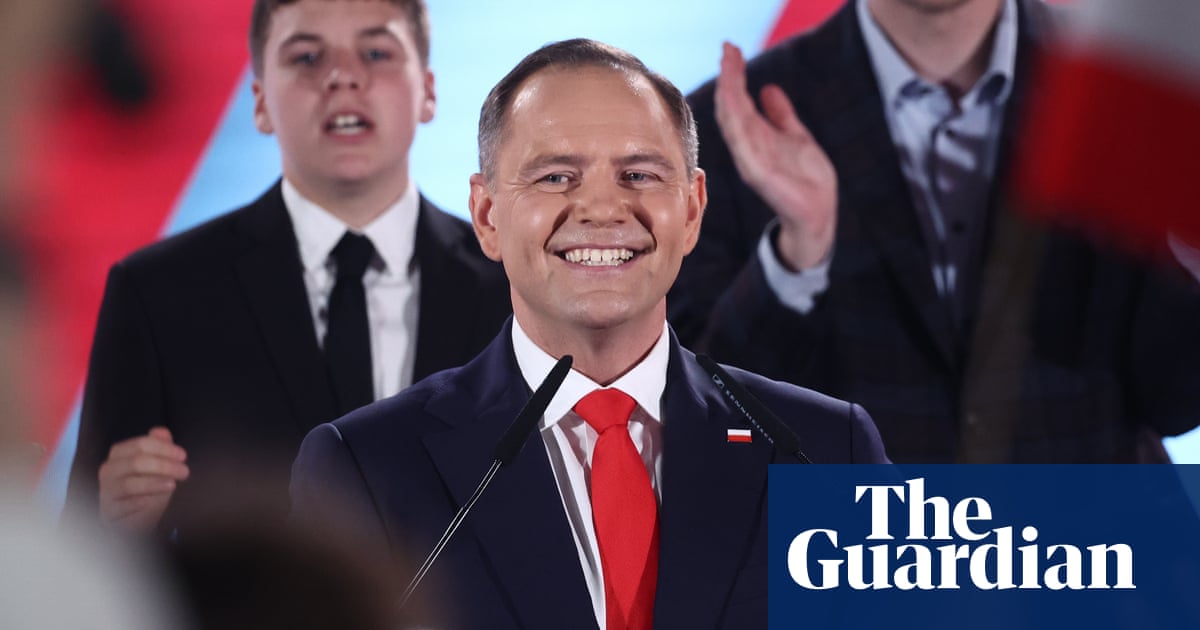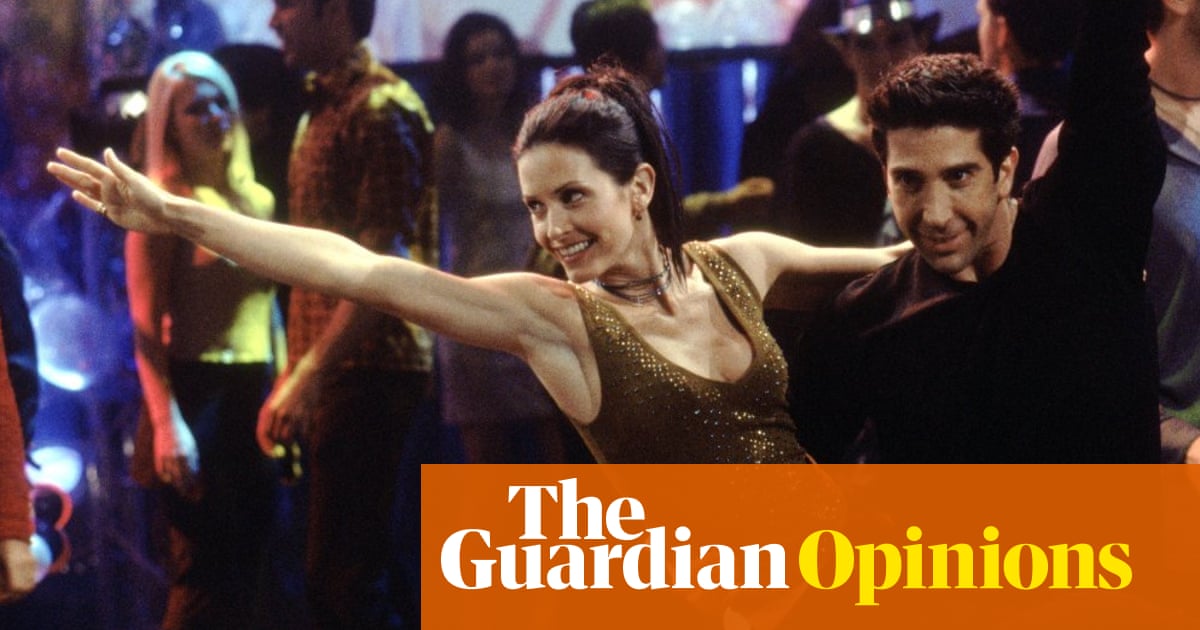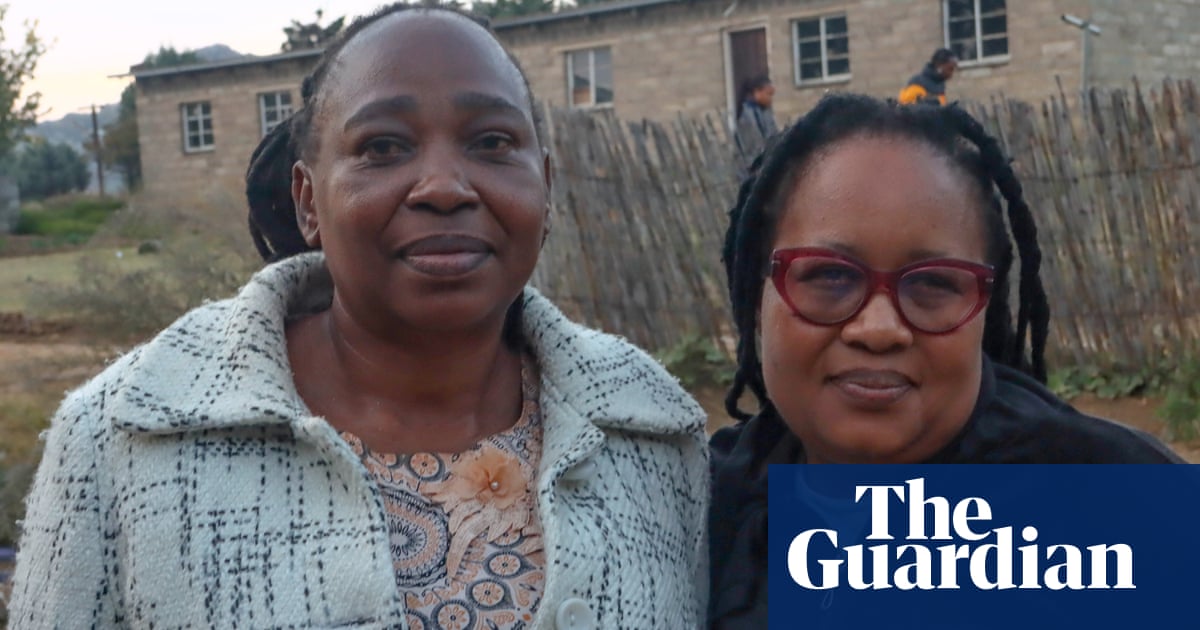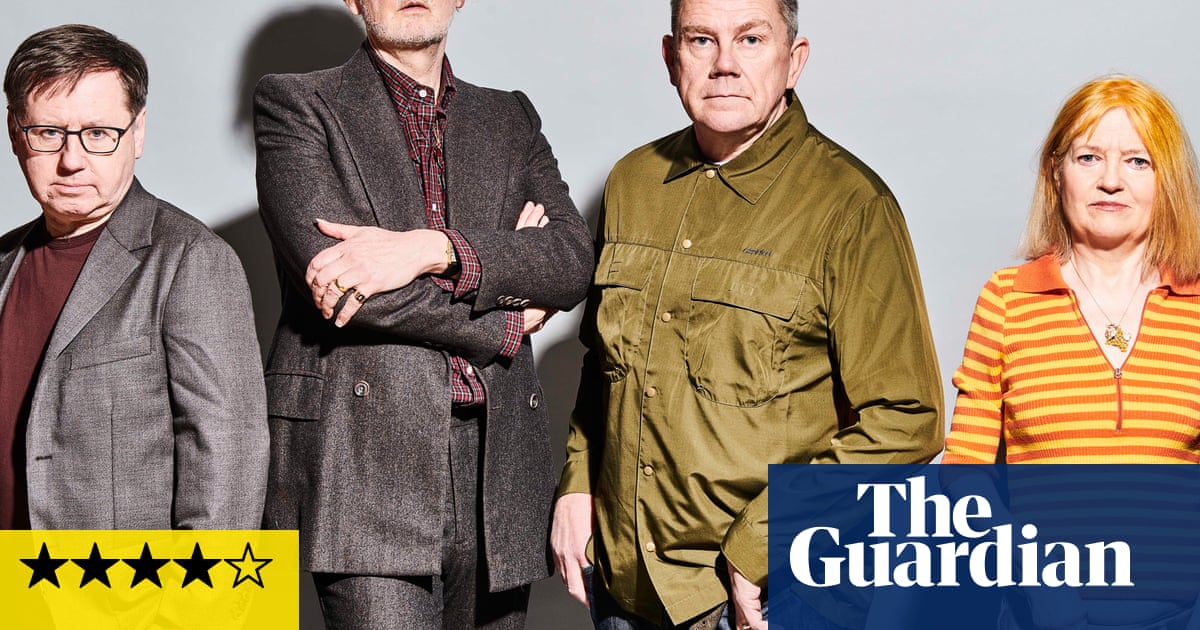“I live in Germany’s oldest city, founded by the Romans over 2,000 years ago,” said Gregor, 59, from Trier, a town of about 110,000 inhabitants in the country’s affluent south-west and part of the world-renowned Moselle valley wine region. A short driving distance away from the borders of Luxembourg, Belgium, France and the Netherlands, Trier is often described as being “in the heart of Europe”.
“When I walk the dog,” Gregor said, “I see old people looking for food in rubbish bins. It hurts me. Twenty years ago, I never saw anything like this.”
Gregor, who has two sons in their 20s, worked in the financial industry for about 40 years until he lost his job last summer. He is looking for a new job, but in Luxembourg, not Germany, because “the pension system is much more attractive there, the roads are better, public transport is free”.
He will be among millions of Germans heading to the polls on 23 February to vote in a snap general election, after the coalition of the Social Democrats (SDP), Free Democratic party (FDP) and Greens collapsed in November.
Gregor was one of hundreds of citizens who shared with the Guardian how they felt about the chaotic political and economic situation in Europe’s largest economy.
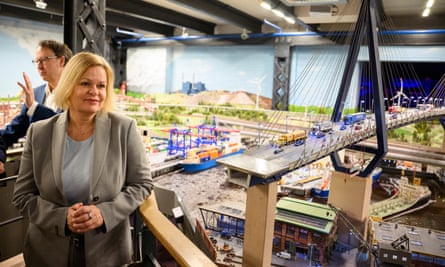
While most people agreed Germany’s malaise was primarily to be blamed on a lack of sorely needed investment in the country’s ailing transport, energy, housing, education and health infrastructure, opinions on how such investments should be financed diverged enormously.
Having supported left-leaning parties in the past, Gregor will likely vote for the liberal but fiscally conservative FDP – the party many voters blame for the coalition government’s downfall, as its leadership refused to embrace more public borrowing in accordance with the German “debt brake”, enshrined in Germany’s constitution after the 2008 global financial crisis.
The controversial law prohibited the federal government from running more than a very modest budget deficit after 2016, and has required the country’s state governments to balance their budgets since 2020.
“You can see that we lost prosperity over the last decade when you travel in Germany, when you look at the infrastructure,” Gregor said. “Since last summer’s [Euro 2024] football tournament, everyone knows that we have a problem with our trains. They are unreliable. When I was younger, trains were punctual, efficient, affordable. Then there is our inability to adapt our economy, fix our productivity problem and regain our [competitive edge]. [The former chancellor Angela] Merkel has not capitalised on the good years. We haven’t invested enough, and this is the result.”
Like various other people from states in what used to be West Germany, Gregor opposes the funding of new investment with more public debt.
“Higher European and German debt will not solve our problems. We have to strengthen our economy, stabilise our society, and to do that we have to introduce reforms, for instance to our unemployment welfare system,” he said. “A lot of people want to work part-time, but then they will not have enough for their pensions. What we need to do is: work longer, work harder.”
During the years of Merkel’s chancellorship – a period widely considered synonymous with economic success, security and political stability for the most part – large swathes of German society, Gregor feels, moved further to the left as Merkel had been increasingly embracing centre-left ideas, which included her decisions to abandon nuclear power, to expand the welfare state and to open the borders to more than a million asylum seekers at the height of the European refugee crisis in 2015.
Now that cheap gas from Russia has dried up and German industry has suffered, resulting in Germany facing a third consecutive year of recession, the mood has shifted in many parts of the country.
Chancellor Olaf Scholz’s SPD, the traditional centre-left force, has collapsed to just over 15% in the polls. The centre-right CDU/CSU alliance is comfortably in the lead with about 30%, while the anti-immigration, Eurosceptic, far-right Alternative für Deutschland (AfD) has risen to more than 20%, making it the second strongest party.
Although Gregor worries about immigration and “open borders” and feels Germany is “importing problems”, he fears the AfD is “going to destroy our society”.
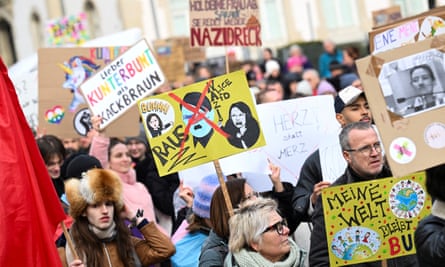
“There is a radicalisation on the left and right,” he said. “Die AfD and [far-left] BSW [Sahra Wagenknecht Alliance] are pro-Putin, fighting against democracy, and against Europe. [It’s because] we have severe problems, with the war in Ukraine, and a weak economy.”
While Gregor hopes parties from the political centre will eventually act, he believes politicians and voters, in particularly the western part of Germany, are still too comfortable to address the issues driving other voters to political extremes. “The pain,” he said, “isn’t sharp enough yet.”
On the other side of the country, in Dresden, in the former East German state of Saxony – where the AfD has celebrated staggering electoral victories for years – lives 32-year-old Franziska Roeber, a university research associate.
“The collapse of the coalition brings a lot of uncertainty with it,” she said. “Especially with conservative parties becoming more conservative and rightwing parties gaining more traction, the coalition was – at least on the surface – some kind of political bulwark against those ideas. Now that’s gone.”
Roeber will likely vote for the main far-left party, Die Linke, or the Greens, citing healthcare, the climate crisis, social benefits and increased support for students as the issues that will decide her vote.
She was, however, among many who predicted the “unconvincing” performance of Scholz’s administration, marred by infighting, would pave the way for the CDU/CSU’s return to power.
“Many people think [the SPD and the Greens] betrayed their values, but they’ve also pushed through legislation that wasn’t well received by [other parts of] the population, such as the Heating Act, which phases out oil heating systems that a lot of people still use,” Roeber said, adding the policy had “hit many people really hard”, and cost her own parents about €15,000 (£12,500) for the installation of a new gas heating system.
Many voters were turning to the conservatives “out of sheer frustration”, she said, while other communities, especially in rural areas of eastern Germany, felt “forgotten and left in the dust” by German politics, turning to the AfD in protest. “I think this is a real turning point in Germany. The thought that a majority of the population might go for rightwing parties is really, really scary.”
Lyn Faltin, 39, from Munich, who describes herself as working class, was among many who expressed dismay over the Greens’ and SPD’s performance while in power and pointed to an identity crisis among leftwing parties.
“I will vote Green, as I always do, but with much less enthusiasm than ever before,” she said. “I wish the Greens and SPD would fight for what they are supposed to fight for, the planet and the working class, invest in education, but they don’t do that. They are so very focused on not upsetting anyone that they lost all courage to bring change. Climate change is somehow not an issue in the campaign. It’s all about limiting immigration, which is not a problem.”
While scores of people expressed concern about increasingly rightwing rhetoric regarding immigration in German politics, even from Scholz himself, others welcomed this shift, with a number of people pointing to recent terrorist attacks such as the mass stabbing by a Syrian asylum seeker in the western city of Solingen last summer.
after newsletter promotion
“The mainstream parties need to do something about the collapsing economy and the immigration problems we are facing, or many voters will go for the AfD, which will lead to more influence from Putin,” said an IT admin worker from Berlin in his late 30s who wanted to stay anonymous. “I hope the winning party will make brave decisions to lead us out of this stagnation, a meek government will only make the situation worse.”
Another major concern he cited was “the threat of war”.
Dozens of respondents said they were undecided how to vote, as they felt that no parties had presented credible solutions. “For 16 years, the CDU under Merkel lulled us into the illusion of security, convincing us that we didn’t need to worry about dictatorships, climate change, or the social issues of our time,” said Tammo, 31, a software engineer from Bremen in the north-west of the country, who was still undecided how to vote.
“Now that these problems are out in the open, there is fear of what lies ahead. Many people don’t want solutions, they want a return to the old status quo of blissful ignorance, but the prospect of Friedrich Merz’s almost-certain chancellorship, as a figurehead of regression, is hardly inspiring.”
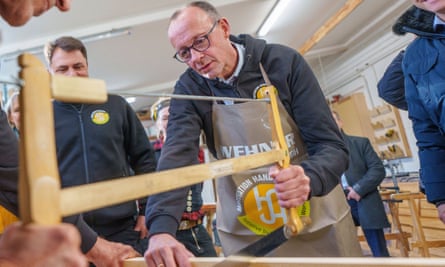
Lucia, 44, an environmental project manager from Frankfurt, said: “As the government is self-obsessed with embarrassing internal power struggles, I fear that the German people are looking for strong ‘father figures’ and turn to the AfD for guidance. As a member of the small German POC [people of colour] community, I literally feel people’s hatred towards foreigners growing.”
Over the past two years, Lucia was attacked three times by strangers in the street, she said, and a Turkish friend was pushed off her bicycle. “Frankfurt is the city of money, very international. But I have a close friend, a hairdresser. People tell her what they feel. And for the past two years, she’s been saying the rightwing parties are getting stronger, because people are afraid.’”
Many people agreed the debt brake was one of the main barriers for the government to properly address the numerous issues the country is facing, including the state of Germany’s military.
Various people cited security fears amid global geopolitical turmoil as a main reason why they wanted the government to ignore constitutional borrowing constraints going forward, such as Julian, 36, a researcher for the Catholic church from Bavaria.
Among the issues that were most important to him were “the promised restrengthening of the armed forces”, “a forceful defence of Ukraine”, “a strong Europe” and “the need to address climate change”. He was planning to vote Greens, he said, as they had repeatedly called for the removal of the debt brake.
“What will happen to Europe if Ukraine should fall?” he asked. “There is a pervading sense of ‘nothing works’ in the public discourse here. We are stifled by nimbyism and our own bureaucracy. Our tech industry is a joke, as are our armed forces. Inflation runs rampant and now even the car manufacturers are hitting very troubled waters.”
Many others commented on the dire outlook of the German automotive industry, a major economic pillar..
“The German carmakers’ arrogance and failure to make necessary changes is quite similar to that of Detroit in the US in the 70s,” said Ania Bothe, an architect from Berlin and usually an SPD voter, who was finding it “difficult” to decide how to vote this time. “Back then, [Detroit automakers] wanted to keep producing their huge US limousines, but the rest of the world did not want to buy these any longer.”
Various people disagreed that it was a lack of investment in future-facing energy and new technology that was crippling the German economy, and blamed costly environmental and energy policies by the “elitist” Greens for the economic downturn instead.
David, a retired airline pilot and previously a CDU voter, from a small Bavarian town, held the Greens’ “ideology” responsible for “the most dysfunctional, incompetent government” he felt he had ever lived under.
“I will be voting for the AfD,” he said. “I’d like to send a warning shot with my small vote, because I want the other parties to engage with some of their ideas.” While there was a “fairly extreme element of the party”, David said – for example he did not agree with its stance on Russia – its opposition to immigration appealed to him.
David said food prices were high, wages were stagnant, the healthcare system was failing, and unregulated immigration was “out of control”. “I have the feeling that the politicians don’t understand the citizens, [and] how frustrated they are, like me. I wouldn’t vote for Trump, but I don’t think it’s wrong to say: Germany first.”
Angelika Surkamer, a 59-year-old travel manager from the picturesque city of Paderborn in North Rhine-Westphalia, is voting Green for the first time as she agrees with the party’s energy policies and considers the climate crisis “the major problem”.
She said: “Things were not going well under Scholz, but will not get any better under Merz. I am afraid that we as a nation will get weaker, making the EU weaker, and this with an erratic US government on one side and Putin on the other. Nobody will care about climate or ecological issues, ignoring the signs of our time. Personally, I feel more insecure than ever.”

 3 months ago
52
3 months ago
52
